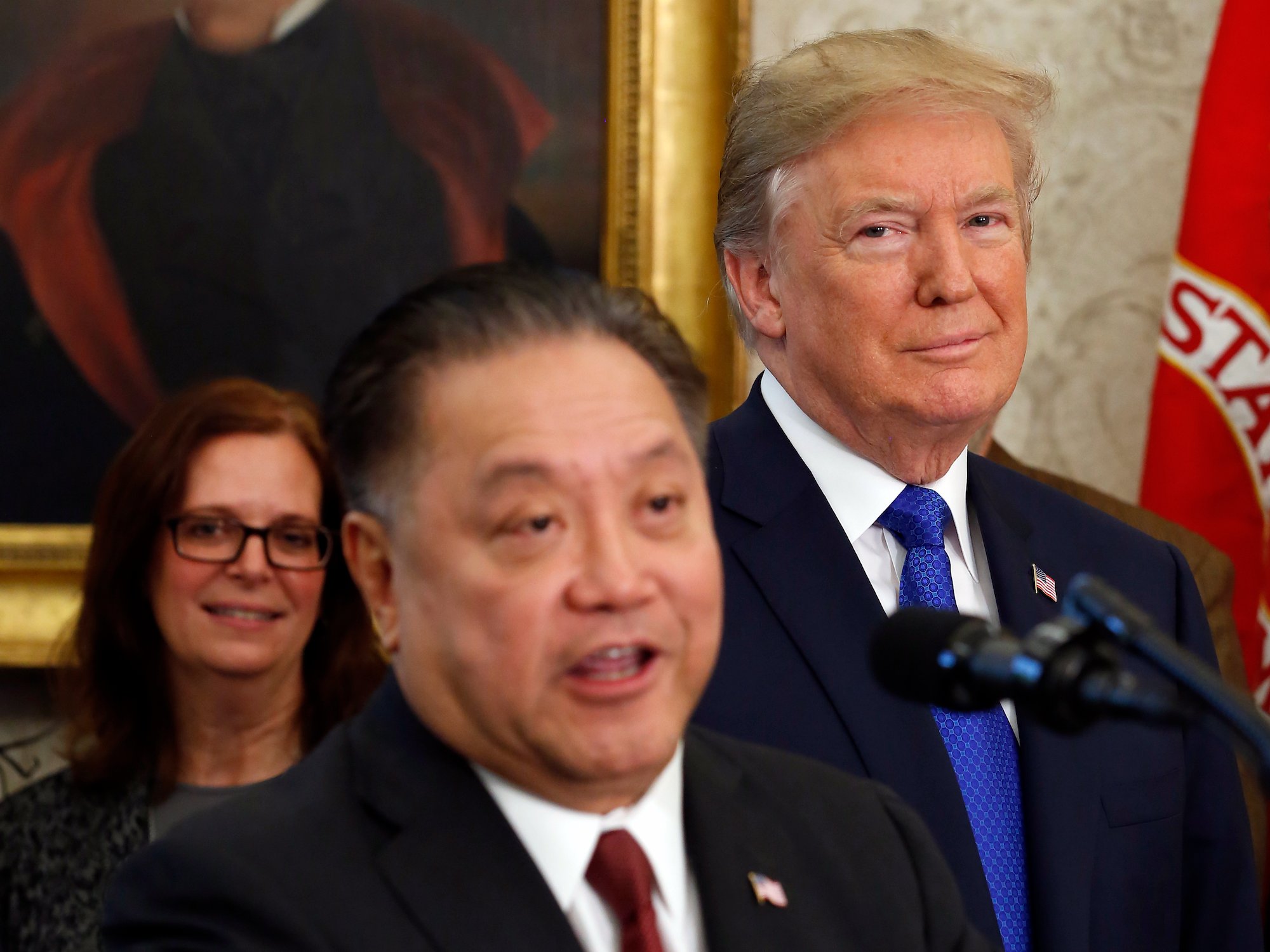 Broadcom CEO Hock Tan spoke at the White House Thursday alongside President Donald Trump.Martin H. Simon/Getty Images
Broadcom CEO Hock Tan spoke at the White House Thursday alongside President Donald Trump.Martin H. Simon/Getty Images- Chipmaker Broadcom is reportedly exploring a deal to acquire rival Qualcomm, which is valued at more than $80 billion.
- Broadcom CEO Hock Tan joined President Donald Trump in the White House Thursday to help unveil the White House tax plan and announce the company’s relocation to the US.
- The potential merger features the fourth- and sixth-largest chip makers in the world and would likely come under antitrust scrutiny from the Department of Justice.
- Relocating to the US removes the need for any deal to be examined by the Committee on Foreign Investment (CFIUS).
Semiconductor giant Broadcom is reportedly exploring a deal to acquire $80 billion rival Qualcomm.
The timing of the news is notable, coming as it does a day after its top executive made a high-profile visit to the White House to support President Donald Trump’s tax plan and announce its relocation to the US. Broadcom CEO Hock Tan joined Trump in the White House on Thursday, lauding the White House’s efforts to make the US more business-friendly.
“Thanks to you, Mr. President, business conditions have steadily improved. The proposed tax-reform package will level the global playing field and allow us to compete effectively in worldwide markets,” Tan said during his address.
The timing of those warm words, when the company might be looking at an industry changing deal, could be coincidental. Still, any deal for Qualcomm is likely to have political ramifications.
First, the potential marriage of industry rivals — Broadcom is the fourth-largest chip maker in the world while Qualcomm is the sixth largest — could come under antitrust scrutiny from regulators. The US Department of Justice just this week made overtures to block AT&T’s $85 billion bid for Time Warner, for example, while European regulators are looking in to Qualcomm’s proposed $47 billion deal for NXP Semiconductors.
Second, Broadcom’s relocation to the US is relevant, too.
The company has been trying to complete a $5.5 billion acquisition of technology firm Brocade Communications Systems since last year, but the deal has been hung up awaiting approval by the Committee on Foreign Investment (CFIUS) in the United States — a government committee that vets foreign investments in US-based companies.
The two firms had initially set a November 1 first deadline to complete the deal, but last month they pushed the deadline back.
Since Broadcom will be a US-based firm itself, it will no longer need approval from CFIUS. And that would hold true for a deal with Qualcomm too.













